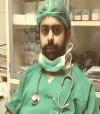What Causes An Unusual Drop In Heart Rate After Local Anesthesia Administration During Dental Surgery?

 Sat, 27 Jan 2018
Answered on
Sat, 27 Jan 2018
Answered on
 Wed, 22 Aug 2018
Last reviewed on
Wed, 22 Aug 2018
Last reviewed on
Have not gone to dentist in many years because the last time i had a very unpleasant experience.
I was not very anxious going in, and i was going to pull å tooth. She have me an injections to numb the tooth area and when she started working i immediately felt bad. Nauseous and faint. It is important to notice that my heartrate went DOWN and not up. Felt i got drop in bloodpressure and LOW heartrate. The dentist stopped.
Later i went to å spesialist and he pulled the tooth with no problems. Now I do react that way to weird things . Pain for instance. Or physical straining activity.
Is there an explenation for this? I need a dentist now because of periods of intense toothache but i dont dare and fear i.might actually to into cardiac arrest at the dentists . I do have some heart issues such as ectopics and tachycardia with a bundle branch block
Please help.
Need Holter monitoring and EP studies.
Detailed Answer:
Hello,
Thanks for sharing your concerns with us. We will try to help you in best way possible. First of all it's sad to know what you had been going through lately.
Based on the history you have shared, for having such incidences in past it's better to consult a cardiologist and have baseline cardiac work up repeated with some extended series of tests to rule out any such possibility in future.
The stress, pain or local anesthetic used can all precipitate the event that you had experienced before at the dentist. It is also advisable in your case to follow dental work up at a tertiary care facility where both cardiac and intensive care facilities are available and not at an isolated dental clinic so that any unforeseen event can get managed immediately.
For the incidence of arrhythmias in past, you need a detailed work up with an electrophysiologist and to have EP studies done but at the moment a baseline Holter monitoring which is in fact a record of your heart rhythm over 24 hours should be done to monitor incidences of such rhythm over a day long cycles.
A baseline echo cardiogram and if needed exercise tolerance tests may be needed to look for any ischemia of heart muscles to be triggering factors. Use of rhythm control drugs may also be needed before hand. But due to constant pain dental work up seems unavoidable.
Wishing you a speedy recovery.
Hope this has answered your query. If you have any questions please feel free to ask.
Regards.

I have had many many holters and ecg in addition to ultrasound of the heart
They never found anything other than a benign block and ectopics.
But i have never had an insident where my heartrate goes so low when i have had a holter monitor on me.
So you think this reaction is because of something wrong in the heart and that it may be dangerous for me to have dentalwork done?
So it's better to have EP studies beforehand.
Detailed Answer:
Hello,
That's good that most of the work up was normal but it's better to have a review with electrophysiologist and have EP studies done.
Dental work if needed and indicated should be done in some hospital where all departments like cardiologist and CCU are available for emergency consultation if needed.
Take care.
Dr. Saddiq Ulabidin, General & Family Physician
Answered by

Get personalised answers from verified doctor in minutes across 80+ specialties



